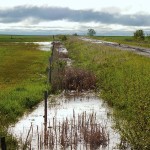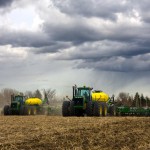
Tag Archives Dan Mazier — page 6

After 20 years, grain transportation still dominates debate at Fields on Wheels
The more things change the more they stay the same, but the grain system has made huge gains, says Mark Hemmes

KAP president pleased with ag debate
Important farm issues were discussed respectfully

KAP doesn’t want new UAV regs to unnecessarily ground farmers
Dan Mazier agrees safety is important, but in wide-open rural areas Transport Canada’s regulations need to be flexible enough to reflect the reduced risk of flight mishaps

Condition of rural roads a major concern at KAP meeting
KAP members say rural road conditions are unacceptable and look to lobby for improvements

KAP pleased with expansion of waterway accord
Ontario and Alberta have become the first provinces to agree to work with Manitoba and others to improve water health

CGC finds consensus for producer protection, licensing of feed mills
The next step is to prepare licensing and farmer-protection regulations for feed mills and then consult again

Seeding 2015: The never-ending story
Close to a million Manitoba acres could get reseeded and 90 per cent of them were canola

Province says highway ditches not part of weed control ban
The AMM wants some areas to be exempt from new restrictions on cosmetic pesticides

New interim wheat class coming for Faller, Prosper, Elgin-ND
Market potential will be studied before its made permanent. In the meantime the CGC will strengthen the quality specifications for the CWRS and CPSR classes

School taxes for Manitoba farmland still linger after provincial budget
Details will be needed, but a youth job strategy could benefit the rural economy






